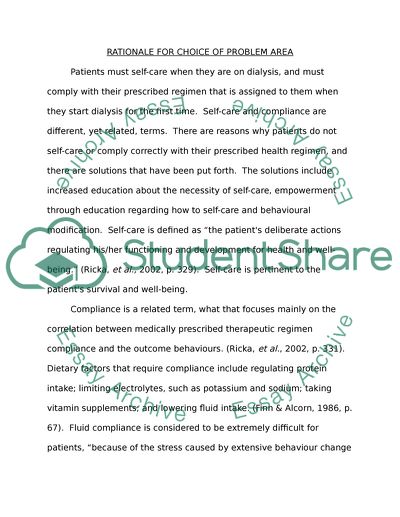Cite this document
(“Evidence-Based Practice Project Research Paper Example | Topics and Well Written Essays - 3750 words - 2”, n.d.)
Evidence-Based Practice Project Research Paper Example | Topics and Well Written Essays - 3750 words - 2. Retrieved from https://studentshare.org/nursing/1622366-evidence-based-practice-project
Evidence-Based Practice Project Research Paper Example | Topics and Well Written Essays - 3750 words - 2. Retrieved from https://studentshare.org/nursing/1622366-evidence-based-practice-project
(Evidence-Based Practice Project Research Paper Example | Topics and Well Written Essays - 3750 Words - 2)
Evidence-Based Practice Project Research Paper Example | Topics and Well Written Essays - 3750 Words - 2. https://studentshare.org/nursing/1622366-evidence-based-practice-project.
Evidence-Based Practice Project Research Paper Example | Topics and Well Written Essays - 3750 Words - 2. https://studentshare.org/nursing/1622366-evidence-based-practice-project.
“Evidence-Based Practice Project Research Paper Example | Topics and Well Written Essays - 3750 Words - 2”, n.d. https://studentshare.org/nursing/1622366-evidence-based-practice-project.


